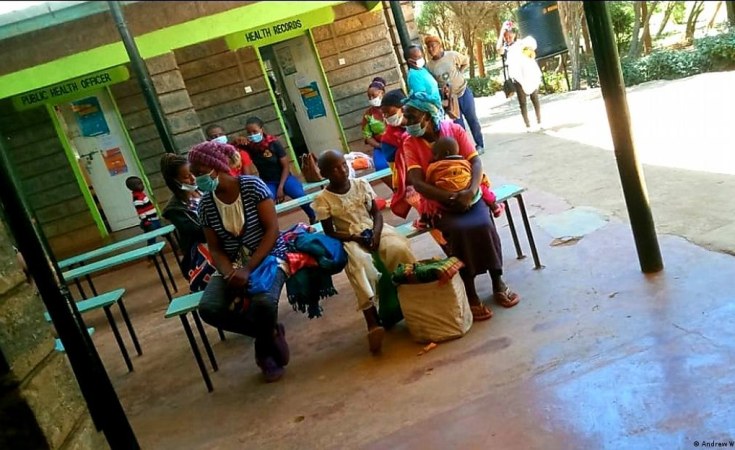Doctors in Kenya have been on strike for five weeks, demanding better wages and working conditions. President William Ruto says his government is out of money to pay the medics. Meanwhile, patients remain without care.
The nationwide doctors' strike in Kenya began on March 12, with at least 4,000 medics demanding higher salaries as part of a 2017 collective bargaining agreement, better working conditions and the employment of intern doctors. Five weeks later, there is no sign of a compromise as the government claims it cannot allocate the necessary funds. DW has put together a timeline of the row so far.
Week 1: Demand for higher wages
Led by the Kenya Medical Practitioners, Pharmacists and Dentists Union (KMPDU), 1,210 intern doctors, medical doctors, pharmacists and dentists laid out their demands. These included a salary increase of up to 206,000 Kenyan shillings ($1,548, €1,451) per month.
The doctors also called on President William Ruto's government to fulfill its 2017 promise to increase their salaries. The government rejected the doctors' demands and made a counteroffer which was rejected by the doctors' union.
Week 2: Health sector paralysis
In its second week, the strike caused widespread disruptions in healthcare services. With medical professionals absent from their posts, hospitals, and clinics, many patients were left unattended and desperate for medical assistance.
A 12-year-old boy taken to the hospital by his mother due to a broken leg wa s turned away from a hospital in Kakamega county in western Kenya because there were no doctors to assist.
Another patient affected by the ongoing doctors' strike told DW that he needed to raise money for an urgent spinal surgery.
Week 3: First casualty as doctors dig in
Kenyan doctors stopped offering emergency medical services at public hospitals as the strike entered its third week.
According to local media reports, a young man died from what first appeared to be a toothache but then advanced to a blood infection and malaria. He had been moved between several hospitals, seeking medical attention to no avail.
Many patients began turning to private clinics, which are costlier than public hospitals, to receive medical attention.
Week 4: Catholic bishops urge government to take action
Bishops under the Kenya Conference of Catholic Bishops (KCCB) call on President Ruto to "speedily" resolve the concerns of the striking doctors.
Meanwhile, Kenyatta National Hospital, the country's largest referral hospital, laid off 100 of its striking doctors and announced it had hired new staff as replacement.
Week 5: President Ruto lashes out at strike supporters
President William Ruto has expressed dismay at leaders endorsing the strike: "If you support them [the doctors], pay the money they are asking for," the president said.
Ruto insists that the government's offer is final -- a position the KMPDU firmly rejects. A Kenyan court has given the government and the medical union 48 hours to agree on a deal.
Edited by: Chrispin Mwakideu


